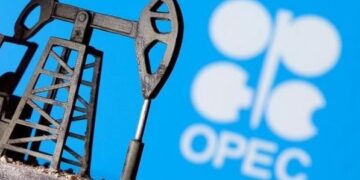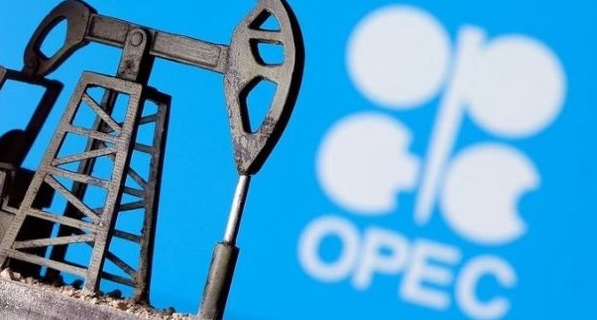By John Ikani
OPEC has announced that Nigeria is poised to see the establishment of small modular refineries, each capable of processing 20,000 barrels per day in the near future. This revelation comes from the recently unveiled World Oil Outlook presented in Saudi Arabia.
The report predicts a noteworthy boost in Africa’s distillation capacity, with an estimated addition of 1.2 million barrels per day in the medium term.
A significant chunk of this growth can be attributed to the Dangote refinery in Nigeria, contributing 650,000 barrels per day of essential capacity expansion.
The Dangote facility, inaugurated in May 2023, is set to kick off commercial operations this month for diesel and aviation fuel, while petrol refining is slated to commence in November 2023.
Moreover, the World Oil Outlook affirms, “Furthermore, Nigeria is gearing up for the establishment of several small modular refineries in the medium term, each with capacities of up to 20,000 barrels per day.”
Despite this promising outlook, Nigeria faces significant challenges in the form of funding shortages for modular refineries and the rising incidents of sabotage attacks on oil pipelines and oil theft, which severely disrupt operations and progress.
In an Arise News interview in July 2023, Momoh Oyarekhua, Chairman of the Crude Oil Refineries Association of Nigeria (CORAN), proposed a solution to these issues: supporting modular refineries. He emphasized that backing these refineries could result in more affordable fuel for Nigerians by eliminating various associated costs.
Specifically, he highlighted the expenses related to exporting crude oil for refining abroad and then re-importing the refined products. This process involves costs such as clearing refined petroleum products at the terminal, port charges, and the involvement of middlemen in transporting products to Lome, from where they are then shipped into Nigeria.
It’s worth noting that, as of last week, Mele Kyari, the Group Chief Executive Officer of the Nigerian National Petroleum Company (NNPC) Limited, revealed that the company has resumed its role as the sole importer of fuel into the country. This shift in policy was attributed to the current foreign exchange shortage in Nigeria, which hindered private marketers’ ability to import fuel despite holding licenses to do so.
In the aforementioned Arise News interview, CORAN Chairman Oyarekhua also stressed the importance of modular refineries purchasing crude oil in Naira to align with their earnings in the domestic market, reducing pressure on the Forex market.
To illustrate this point, he presented a scenario where 40 modular refineries, each with a 10,000 barrels per day capacity, would need to buy crude oil in USD, resulting in substantial monthly expenditures. This underscores the need for a more streamlined approach that ensures feedstock procurement aligns with the country’s economic interests and stability.




































